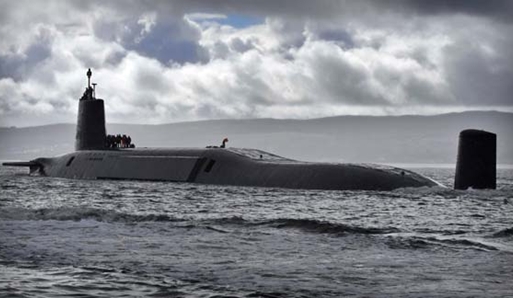
From the Editors of the Financial Times: Between now and 2016, Britain must decide whether to spend £20bn building four new submarines that can carry Trident II missiles with nuclear warheads. The current fleet of Vanguard class submarines that carry Trident is nearing the end of its service life. As the moment of decision approaches, debate on whether the nation can afford a like-for-like replacement for Trident has intensified.
The Financial Times believes Britain must retain its nuclear weapons capability. The ability to inflict “unacceptable damage” on a potential aggressor is the ultimate guarantee that Britain will not be invaded or destroyed. The possession of nuclear weapons is critical to the status of both Britain and France as Europe’s two leading military powers and as members of the UN Security Council. Recognising this, none of Britain’s three main political parties today advocates unilateral nuclear disarmament.
However, since 2010, the Liberal Democrats, the junior partners in the ruling coalition, have raised questions about Trident. They have pondered whether Britain might save money by relaxing the round-the-clock patrols conducted by the submarines carrying the missiles. They have even asked whether Britain might ditch Trident altogether and find a cheaper delivery system, one that involves, say, launching cruise missiles from multipurpose submarines. To help advance their arguments, the Lib Dems asked Britain’s Cabinet Office to publish a report setting out possible options.
The first thing to be said about the Cabinet Office report, published on Tuesday, is that it comprehensively demolishes the idea of ditching Trident for something else. The report concludes that any new system – whether launched from land, air or from multipurpose submarines – would mean designing a completely new warhead. This would take so long and be so costly that “any of the realistic alternative systems is . . . more expensive” than the existing one. (photo: Royal Navy)
Image: royal%20navy%207%2017%2013%20Vanguard.jpg
